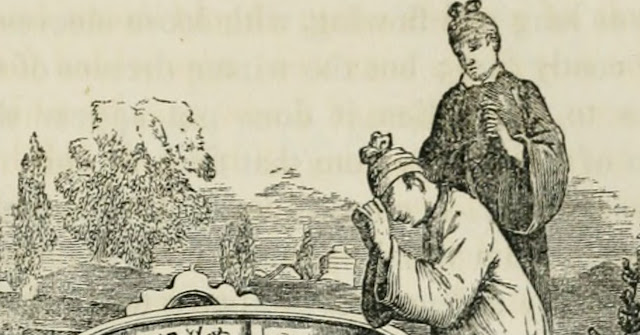Liu Hui was a son of Emperor Gaozu (king r.206-202 BCE, Emperor r. 202-195 BCE), the founder of the Han Dynasty in China. Although the Liu family would continue to rule China for centuries, Liu Hui and his brothers fell on very hard times after the death of their father. Of the eight sons fathered by Emperor Gaozu, only one was born from Empress Lü. Therefore, when Gaozu died and Empress Lü’s son, Liu Ying, became the new emperor, she quickly came to regard her late husband’s other surviving sons as threats to her own child’s power.
The first of Liu Hui’s brothers to be targeted by Empress Lü was Liu Ruyi. Empress Lü apparently detested Ruyi because his mother, Lady Qi, had been Gaozu’s favorite concubine. Furthermore, it was said that Emperor Gaozu had seriously considered making Liu Ruyi his heir instead of Empress Lü’s son. Nevertheless, the Empress and other advisors convinced Emperor Gaozu to keep Liu Ying as his heir and to send Ruyi away from the capital to become the king of Zhao. Even though Empress Lü had her way, she did not forget how close Lady Qi and Ruyi had come to shattering her life. Therefore, in 194 BCE, one year after the death of Gaozu, she had Liu Ruyi poisoned and then executed Lady Qi.
Liu Ying, who was supposedly driven to unhealthy habits to cope with his mother’s brutality, died in 188 BCE, when he was only twenty-three years old. Upon her son’s death, Empress Lü took full control of government, ruling as regent for two successive child-emperors of questionable birth. During her time as regent, she diligently introduced members of her Lü clan into government and noble positions, which angered and frightened her husband’s Liu clan. Unfortunately, by the end of the decade, Empress Lü apparently began to harbor murderous feelings toward the other sons of her late husband.
Sometime during Empress Lü’s reign, she arranged for Liu Hui and other sons of Gaozu to marry women from the Lü clan. These uneasy marriages caused drama between the Liu princes and their overbearing stepmother. This tension peaked in 181 BCE, when Empress Lü had Liu You—the new king of Zhao and another of Gaozu’s sons—starved to death after he allegedly offended his Lü family bride.
Liu Hui succeeded his half-brother, You, as the next king of Zhao, a title which must have seemed like a death sentence after the unnatural deaths of the kingdom’s two previous kings. Liu Hui found himself in an eerily similar situation to his recently deceased brother—both of them had been set up with wives from the Lü family, yet neither brother had any chemistry with his assigned bride. Even worse, Liu Hui’s wife brought with her a troop of Lü clan advisors, whose mission was to turn the new king of Zhao into a puppet ruler.
Despite these unfavorable conditions, King Hui took comfort in having with him a beloved concubine who could ease his sorrows. Yet, Liu Hui’s love for his unnamed concubine caused great jealousy for his queen. Sadly, as Hui’s brothers had discovered before him, it was deadly to be the target of a Lü woman’s scorn.
Whereas Liu You’s bride had complained to the empress about her husband, King Hui’s wife instead chose a more hands-on approach to dealing with her problem. According to Sima Qian, the angry queen exacted her revenge not on King Hui, but on the concubine that he loved. As even the royal attendants in Zhao were apparently loyal to the Lü clan, it was not difficult for the queen to have her way. Tragically, King Hui’s last bastion of comfort was murdered with poison.
The death of the woman he loved plunged Liu Hui into heartbroken depression. After her death, the king was inspired by the muse of sadness to write a poem in honor of his murdered partner and he even composed music to accompany the mournful verses. In the end, King Hui lost the will to live and ultimately committed suicide before the end of 181 BCE.
Written by C. Keith Hansley.
Picture Attribute: (image from the Pictorial History Of China And India, by Robert Sears (1810-1892), [Public Domain] via Creative Commons and Flickr.).
Sources:
- The Records of the Grand Historian (Shi ji) by Sima Qian, translated by Burton Watson. New York: Columbia University Press, 1993.

No comments:
Post a Comment